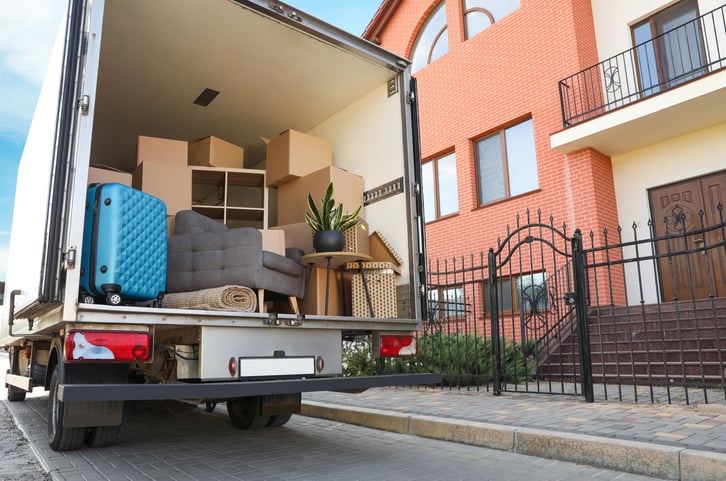Living in an apartment has many perks. One of them is that they are relatively easier to pack up. When it is time to move to your new apartment, the moving process should not be as long and arduous as it is with a traditional house (see owning a house vs. renting an apartment). However, there are several factors that influence how long it will take to pack everything up and bring it to the new place.
Why Should You Ask ‘How Long Does it Take to Move Apartments?’
Before the closing date and the actual moving day, you have to make a lot of important decisions. Even if you have a studio or one bedroom apartment, a lot of stuff can accumulate over time.
By asking the question ‘how long does it take to move apartments’, you can start streamlining the moving process.
The Decisions
With a proper analysis, you can start making decisions about:
- Whether to hire professional movers, moving companies, etc.
- Where to save time and effort
- When to start packing up your old apartment
- Whether to set aside more time, especially if you’re moving to a new house
- Schedule time according to truck accessibility, apartment size, etc.
Along with the points above, make sure that you know about the expenses when moving into an apartment.
How Long Does it Take to Move Apartments?

When you tell your landlord about your intended move, don’t just give two weeks’ notice. Ideally, the porches of packing up and organizing your belongings should start six weeks before the move-out date. You may require more or less time than this, depending on the size of the rental property and other factors. One of those factors is if you’ll have movers help you pack your belongings; MoveBuddha offers a helpful cost guide that makes it easy to figure out what you should budget for this service, as well as what to expect from the process.
Have you found just the right apartment for your next stage in life? Wondering how long it will take so that you can plan ahead? Check out the following factors and keep them in mind!
1. The Intended Time Frame
If you are hiring professional movers, they will probably provide you some guidelines according to your apartment size. They might look something like this:
- Two to three hours for a studio apartment or one bedroom apartment
- Three to five hours for a two bedroom apartment
- Up to seven hours for a three to four bedroom apartment
- Five bedroom apartments and larger might take around eight to ten hours, or more
Estimates
The guidelines above are estimates based on the standard sizes of apartments. If a certain apartment complex or community has larger or smaller sizes, moving companies will probably revise the estimated times.
Some apartments may also have unique features like long hallways, walk-in closets, etc. These might increase the packing and moving time.
General Time Frames
With the proper time frame, companies can better gauge how many hours and manpower they need to dedicate to a move. They will then give you quotes accordingly.
May Not Take Everything into Account
The estimated time frames from a company may not include every corner of your old home. Make sure to get quotes for different levels of services, if possible. These could include:
- Packing services
- Loading and unloading services
- Deep cleaning (here are some tips on how to deep clean an apartment)
- Handling fragile items
When you get to your destination, these guidelines on what to know about moving into an apartment will help out. The movers you hire may not take into account certain details, like cleaning your apartment. So, make sure to include that during initial discussions.
2. The Details of Moving
Many aspects of a move might speed up the overall process or slow it down. Let’s have a quick look at them so you can see if they are applicable to your particular situation:
The Internal Aspects
- Apartment Size: This one is pretty obvious; unless there is a hoarding problem at hand, a smaller apartment is usually quicker to pack up and move out of than a larger one
- The Boxes: If you hire movers just to load and unload boxes, keep the boxes ready beforehand; the number of boxes will obviously affect the time it takes to handle them
Furniture
- Furniture: Some people have a sparsely furnished apartment, while others don’t have much; the size of the furniture pieces also matters (learn how to arrange furniture in a small living room apartment here)
- Assembling and Disassembling: Your furniture may require a lot of dissembling, which will take up time both while packing up and setting up the new place
The External Aspects
- Truck Accessibility: If the movers have to walk far to reach the truck, the whole move might take much longer than anticipated
- Weather Issues: Rainy weather, snow, sleet, and other factors can slow down the moving process
Fragile Items, Stairs, and Walkways
- Items to Pack: Other than the furniture, you also have to pack loose items and fragile pieces very carefully; the more you have, the longer things will take
- How many flights of stairs you will have to handle in both the new and old buildings
- Accessibility of a working elevator and its size
- The presence of walkways or long hallways in both places
The Assistance and Distance
- How many people are helping you to move-out and move-in – the more you have, the quicker things should be (although it really depends on how reliable and experienced they are)
- The distance you have to travel (including back and forth trips, if applicable), with traffic and weather conditions potentially delaying the route
Take a Breath
Even after you have considered all these factors in your planning, allow for a little extra time. This leeway period can be a blessing in case there is an unforeseen event that slows everything down. Those extra two weeks or three weeks will also give you a chance to plan and maximize space in a small apartment, if necessary.
3. Make a Timeline
If it’s been some time since your last move, you may have forgotten certain lessons from any past experiences. Plus, you may have either accumulated more stuff than before or downsized to a more minimalist lifestyle. With this in mind, you may not know just what steps to take and how long everything will take.
To make things a little easier for yourself, make a timeline and plan for the impending move:
Locate Your New Apartment
If you do not want to renew your current lease, start your apartment search a few months in advance. The end goal should be to book a place at least a month before the end date of your lease.
Informing Your Landlord
Most landlords will require a notice of at least 30 days. Yours might have other terms; in some cases, the notice period is around 90 days. To avoid penalties and retain your security deposit, make sure to check your contract and plan accordingly.
Hire a Company
When you book your new apartment, hire professional movers for the intended moving dates. Once you have a set time period for moving and experienced movers helping out, the process will be less stressful.
Organize and Declutter
Take inventory of what you have right now and declutter your belongings as much as possible. Organize everything into three or four piles – keep, throw away, and donate/sell. Ideally, one should begin this process six weeks before moving out (see: how to declutter your apartment).
Changing the Address
You will have to transfer utilities and submit your change of address as soon as possible. This step will ensure that your mail gets to the new address. Plus, you will have the power and heat working properly when the move-in is complete. Start this process around two to three weeks before the moving date.
Start Packing
Your packing should begin around a month before you plan to move. This way, you won’t be so stressed a few days before the big day. Spend just a few minutes packing one or two boxes; leave one empty for the essentials that you have to keep out until the last moment.
Clean Up
If you want to get your security deposit back from your previous landlord, start a deep clean some days before moving out. Not only will this increase your chances of getting most or all of the deposit, but will also end things on a positive note (see: how to deep clean an apartment). You do not want to burn bridges or leave your previous landlord on unpleasant terms.
Consider the following steps while deep cleaning your old apartment:
- Use putty to fill up nail holes
- Use a magic eraser to do away with scuff marks
- Clean and scrub the bathroom, especially the fixtures and tub
- After emptying the cabinets, wipe them and let dry before closing their doors
The Takeaway
At the end of the day, it is best to plan ahead and not leave anything to chance if possible. You may get a lot of advice from friends and family members. Unless they have had a similar moving experience fairly recently – with apartment sizes, finances, and furniture comparable to yours, they are probably not qualified to guide you properly.
Instead, go for professional movers and packers who can help in making the whole experience as smooth as possible. Once you are settled in your new place, don’t forget to read up on how to get your apartment to smell good!









